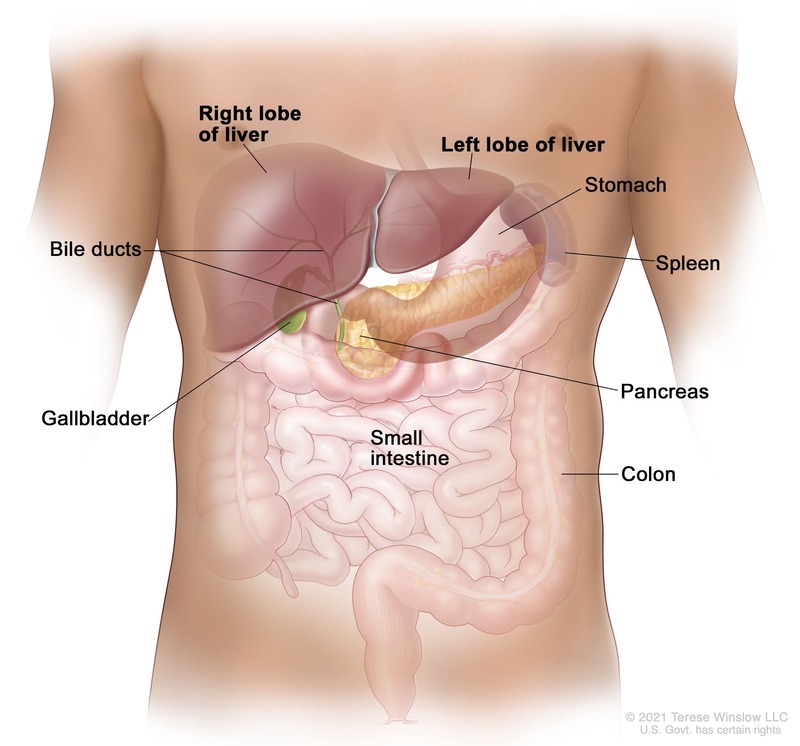- Primary Metastatic Liver Cancer
Overview
 Listen Now
Listen Now

Primary Liver Cancer is cancer that has been first found in the tissues of your liver. If the cancer was found in another organ first, it’s called Secondary or Metastatic Liver Cancer.
Metastatic Primary Liver Cancer is when the liver cancer has spread from your liver to the surrounding areas near your liver and/or to other organs in your body, like bones, lungs, etc.
At this late stage, the liver cancer cannot be removed by surgery but there are many treatment options available today.
What Tests Will I Need and Why?
Blood and Imaging tests are done to understand your general health, confirm your diagnosis and determine your cancer stage.
Doctors may also look for hepatitis and liver damage to tell you more about what caused your cancer.
Tissue analysis is also typically done to identify the cancer cell type, which is critical to finding the best treatment option for you.
If your treatment team has not already performed tests to determine your cancer’s features, please ask your doctor when these tests will be performed.
Re-read this summary as needed and then tap, “Compare My Treatment Options Now“. Our unique Comparison Page will help you understand your FDA-approved treatment options including, who can help you pay for your treatment, where and how each is given and what side-effects you may experience.

Cancer Research U.K. CC BY-SA 4


Recommended Liver Cancer Videos


Liver Cancer In 4 Minutes
Hear from Doctor Sachin MODI


How Cancer Spreads
Metastatic = Advanced


Diagnosing Your Cancer
How Does a CT Scan Work?


Diagnosing Your Cancer
How Does a PET Scan Work?


Exercise! You Can Do It
Reducing Side Effects & More
Commonly Searched Questions
Metastatic or Locally Advanced Primary Liver Cancer Symptoms
Metastatic or Locally Advanced Primary Liver Cancer Symptoms
- Yellowing of the eyes and skin (jaundice)
- Pale stool and dark urine
- Feeling weak constantly
- An abnormal swollen abdomen
- Nausea and vomiting
- Unintentional weight loss
- A lump on the right side below the rib cage
- Pain in the abdomen
Source: Cancer.gov
Metastatic or Locally Advanced Primary Liver Cancer Treatment
Metastatic or Locally Advanced Primary Liver Cancer Treatment
- Targeted therapy
- Immunotherapy
- Radiation therapy
- Ablation therapy
Source: Cancer.gov
Metastatic or Locally Advanced Primary Liver Cancer Survival Rate
Metastatic or Locally Advanced Primary Liver Cancer Survival Rate
Source: Cancer.gov
Metastatic or Locally Advanced Primary Liver Cancer Recurrence Rate
Metastatic or Locally Advanced Primary Liver Cancer Recurrence Rate
Source: Cancer.gov
Metastatic or Locally Advanced Primary Liver Cancer Definition
Metastatic or Locally Advanced Primary Liver Cancer Definition
Source: Cancer.gov
Metastatic or Locally Advanced Primary Liver Cancer Prevention
Metastatic or Locally Advanced Primary Liver Cancer Prevention
- Manage Chronic Liver Diseases: Effectively treat conditions like hepatitis B or C, cirrhosis, or nonalcoholic fatty liver disease (NAFLD) with medical supervision.
- Avoid Alcohol: Limit or abstain from alcohol consumption to reduce liver damage and lower cancer risk.
- Healthy Weight Management: Maintain a healthy weight through a balanced diet and regular exercise to help prevent liver disease.
- Healthy Diet: Follow a diet rich in fruits, vegetables, and whole grains, and low in saturated fats and processed foods.
- Vaccination: Get vaccinated against hepatitis B if you are at risk, as it can help prevent liver cancer.
- Avoid Hepatotoxic Substances: Minimize exposure to substances that can harm the liver, including certain chemicals and medications.
- Regular Medical Check-ups: Regularly monitor liver health through follow-up appointments, especially if you have underlying liver conditions.
Source: Cancer.org










